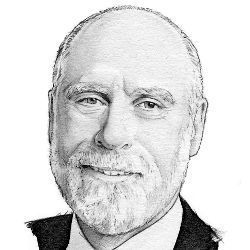
I am certainly no philosopher, but as I observe the apparent erosion of agreement on factual evidence in our society, I have begun to wonder how this state of affairs has evolved and whether there is a path back to rational argument that starts with an agreement on the facts that should inform debate.
Truth has become a rare commodity with the arrival of corrosive memes like "alternative facts." Moreover, the fragmentation of sources of information, misinformation, and disinformation have made it less likely that significant cohorts will share a common basis for informed dialog. I believe "truth" and "belief" have been conflated in ways that exacerbate the problem. Especially in scientific disciplines, we use phrases such as "ground truth" to reinforce our beliefs in our theories. For all practical purposes, science is at best an approximation to truth and the scientific method even tells us theories are only worthy of belief if they can be falsified. That is, if it is possible that experimental evidence can disprove the theory. The idea that a theory is proven really only means evidence matches theoretical predictions. But sometimes, even the best theories have been later falsified by refined experimental evidence not predicted by the theory.
Of course, there is always the possibility of measurement error but good scientists do not cling to favored theories if the possibility of measurement error has been adequately discounted and the measurements fail to match the theoretical predictions within reasonable bounds. Unpredicted evidence can really ruin your theoretical day! Consider the discovery that the universe is not only expanding but the expansion is accelerating. To account for this, a theory of "dark energy" has been developed that supposedly accounts for 70% of the "mass" of the universe (remembering Einstein's equivalence of mass and energy). Of course, we have no idea what "dark energy" actually is.
When we have disagreements about what is "true," I think we are mostly arguing about beliefs and the basis for believing in them. When you argue with someone about their beliefs, in the guise of arguing over facts, you are asking them to change their beliefs. Those are often tied up with identity, group belonging, trust, and social reinforcement ("all my friends agree … and those who don't are not my friends"). Some people do not welcome scrutiny of their beliefs—to question them is a potential personal insult. People will sometimes double down on their beliefs in the face of counterfactual evidence, rejecting that evidence as made-up falsehoods. They will brandish "alternative facts" to bolster their beliefs. Asking them to change their minds is tantamount to asking them to admit they were wrong to believe in an alternative narrative. They may view this as asking them to abandon their identity and inclusion within a group that shares their beliefs.
Science is at best an approximation to truth and the scientific method even tells us that theories are only worthy of belief if they can be falsified.
So the real question is how to expose beliefs that are not consistent with evidence without concomitant personal, psychological, and social collateral damage. In some cases, people will respond to an argument of the form: "You have been fooled by those who do not have your best interests in mind." Of course, this does not work if it is received as "You're so stupid you were fooled!" Rather, there must be a mutual sense of common outrage: "We have all been fooled, even the smartest among us!" In the midst of today's polarized rhetoric, finding a path forward seems daunting. What makes this so difficult is that beliefs are often the consequence of trust in sources: friends, authorities, revealed wisdom. When you ask someone to change their beliefs you may be asking them to cease trusting a formerly revered source of knowledge.
I wish I had a magic formula that would produce the desired result: informed debate based on factual evidence. Somewhere along the line, critical thinking must be given the stature it deserves: the essence of a well-informed society is one in which, possessed of factual evidence, the society comes to agreement on commonsense norms and conclusions and willingly changes these when evidence dictates. Perhaps critical thinking should be part of every educational curriculum from the earliest stages.



Join the Discussion (0)
Become a Member or Sign In to Post a Comment